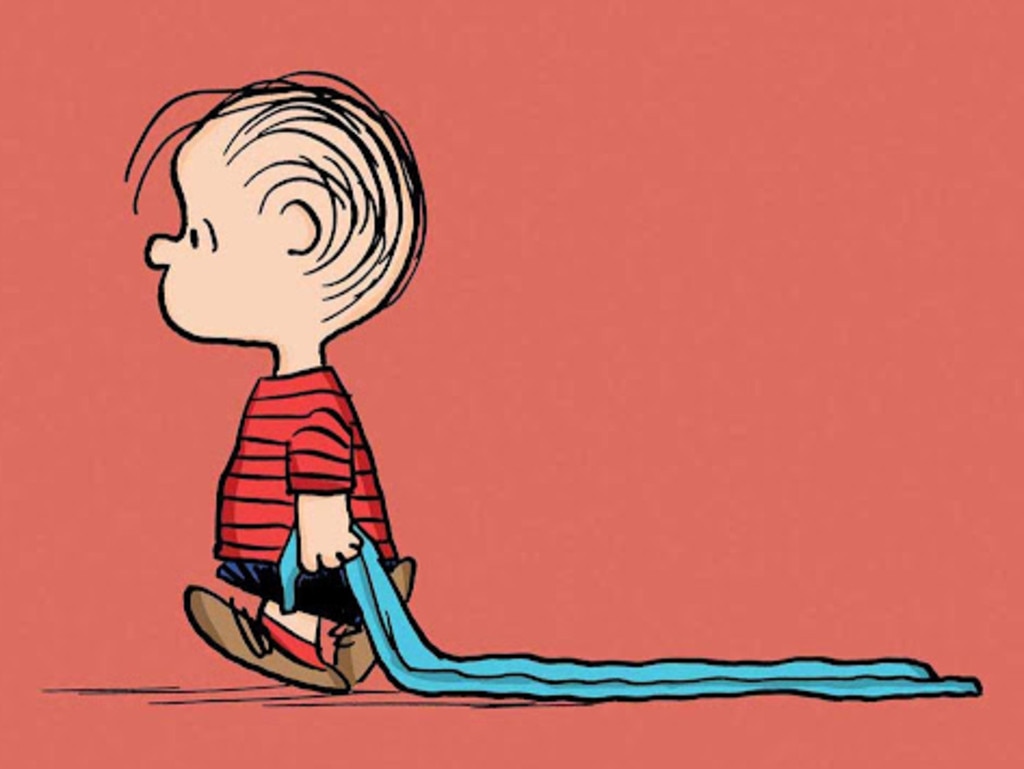Love is blind (and deceitful, apparently)
Remember your first crush? I bet you might’ve bent the truth a little to get a date.

Whenever people say of someone, you’ll either love them or hate them, I always get the funny feeling I’ll hate them. It’s a pretty gloomy admission to make this early in life, but there’s no denying the fact it’s proved remarkably accurate over the years.
It all started one summer, a little over a decade ago, when my best mate, Christopher, introduced me to his university crush, Margot (names changed). Back then Christopher was a chiselled, sporty and ebullient character. He was studying science with hopes of becoming a chemical engineer. Margot was beautiful, steely and ruthless in the pursuit of her passions. She was studying English literature, with ambitions of founding an anarcho-feminist publishing house somewhere out the back of Brunswick. Everyone on campus seemed to know her.
They first met in the university quadrangle. It was week three of semester one and Margot was standing like a field marshal on an upturned milk crate, distributing propaganda for the Socialist Alternative on campus and delivering the occasional sermon – imploring the student body to overthrow their corporatist overlords – via a megaphone she carted everywhere she went.
Up until that point, Christopher had expressed not the slightest interest in the structural dynamics of class struggle or Marx’s materialist conception of history. (Though talented with numbers, the last book Christopher had read was probably Specky Magee or The Day My Bum Went Psycho). But after taking one of Margot’s pamphlets and pausing to strike up conversation, he emerged an avowed convert to the socialist, anti-capitalist, anti-fascist cause.
That night Christopher charged into our local pub in a state of breathless triumph. He’d just exchanged numbers with the most brilliant girl on campus, he declared, before launching into an effusive account of Margot’s good looks, seductive voice and her intoxicating vision of a socialist utopia taking root in the backstreets of North Carlton.
“Trust me,” said Christopher, “you’ll either love her or hate her.”
The pamphlet didn’t make much sense, least of all to Christopher, who until that afternoon probably thought the Socialist Alternative was a noughties boy band and Karl Marx a kind of foreign biscuit.
Still, none of that altered the fact that Christopher had just committed his first big white lie of the relationship – he’d told Margot he came from a long line of prominent trade unionists and, rather more conveniently, was deeply invested in every one of the progressive causes she espoused.
But the ruse worked; soon the pair became smitten and then inseparable. Over subsequent months, as the pace of university life set in, Christopher’s white lies proliferated into a sprawling web of self-deception. Everything he ate, drank, read and watched; what clothes he chose to wear, what music he listened to, even the mode of transport he took was designed to impress the peculiar fancies and expectations of his new crush.
The act was hard to maintain, he admitted, though it was all worth it for a nanosecond of Margot’s affection.

One time, to prove his revolutionary zeal, Margot demanded Christopher enlist several of his closest mates – including me – to join her clique of comrades at their next campus rally. Until then Christopher had refused to introduce any of us to Margot, fearing we’d expose his less than heroic past as radical and revolutionary. “Just give it a chance, mate. It could be a laugh and you’d be doing me a huge favour.”
I’ve never been much of a joiner and hated the idea of indulging Christopher’s misguided infatuations – as well as the absurd pretence that he was a kind of closeted Robespierre – all to impress the elusive Margot. But meetings of the Socialist Alternative were well known for their generous supply of alcohol. Perhaps just one day as Christopher’s useful idiot wouldn’t be all that bad.
And so, my first and last foray into revolutionary politics came out of a clear blue sky one Melbourne afternoon, sometime towards the beginning of the last decade. We met Margot and her comrades in the back bar of a dingy pub close to campus, where a good deal of drink was consumed in preparation for the rally. Everybody looked bored and shifty.
“You’re here to make up the numbers,” she told us flatly, as we assembled behind Christopher, waiting to meet her. “I’m not interested in getting to know any of you. I’m not here to be your friend. What we need today is warm bodies. And that’s where you lot come in.”
Christopher was right: I think I hated her. As first impressions go, it couldn’t have gone much worse. Still, we were here now and there didn’t seem much point in turning back.
But what was it all about? Well, no one quite knew.
It appeared the Socialist Alternative was up in arms about the pay rate of sessional tutors – they’d been given a slight raise, though not nearly enough. The university leadership, those capitalist pigs, had previously paid tutors very little to do not very much; under the revised scheme, it seemed they’d be paid slightly better to do nothing at all. I thought these conditions sounded ideal. But who was I to question the wisdom of my comrades? Their rights had been impugned, and it was time to take arms and march to the barricades. We would’ve burnt the culprits in effigy if we had the slightest idea who they were or what they looked like.
The rally ended in a blaze of bright lights and a grubby sense of shame and self-delusion. The next morning, Christopher came around to my place to announce he’d split with Margot. He stood in the kitchen doorway, drawn and haggard, explaining how she’d played him all along. Far from his own white lies ruining the relationship, it turned out Margot was telling a few of her own. She admitted to maintaining an open relationship with a couple of her fellow comrades, a fact clearly missed by Christopher, until he was happily introduced to them at the big rally.
The terms of the open relationship were plainly unacceptable. And so, Christopher’s days as a romantic in the ranks of the Socialist Alternative were over, but somehow it all seemed worth it – if only to remind him, years later, of his summer dalliance spent in the service of Melbourne’s most passionate revolutionary.








To join the conversation, please log in. Don't have an account? Register
Join the conversation, you are commenting as Logout